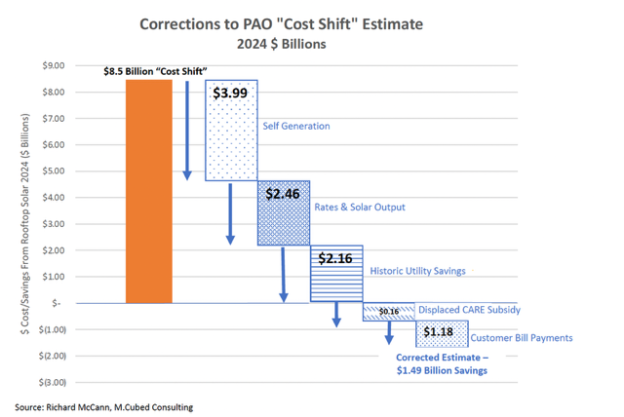California Senate Committee moves to preserve net metering rights in AB 942

A controversial California bill that sparked backlash across the solar, housing, and environmental sectors is now set to be amended. On Tuesday, July 15, the California Senate Energy, Utilities and Communications Committee is expected to vote on Assembly Bill 942—this time with significant changes that would preserve existing net metering agreements even when a solar property is sold.
According to a new committee analysis, AB 942 will be amended to remove language that would have allowed utilities to cancel net metering contracts upon sale or transfer of property—an unprecedented move that solar advocates said would have shredded consumer trust and destabilized the state’s clean energy goals. The bill will also be revised to strike language that would have denied cap-and-trade climate credits to solar users.
“Solar supporters in California extend our heartfelt thanks to the Senate Energy Committee and Chairman Becker for their leadership in amending AB 942 to protect the integrity of net metering contracts,” said Brad Heavner, Executive Director of the California Solar & Storage Association (CALSSA). “This decision is a tremendous victory for California families and businesses who invested in rooftop solar with the state guarantee that their net metering agreements would remain intact—even if they sell their homes.”
Heated debate over solar rights and utility power
Originally authored by a former utility executive, AB 942 set off alarm bells across a broad coalition of more than 100 advocacy groups and industry stakeholders. The original version proposed canceling net metering after ten years or upon home sale—though the ten-year limit was later removed before the bill passed the Assembly.
Opposition to the bill was fierce and unusually wide-ranging. Groups including the California Association of Realtors, the California Building Industry Association, the Los Angeles Business Council, and numerous national environmental organizations issued statements or signed letters urging lawmakers to reject the bill entirely or amend it substantially.
As Solar Builder previously reported, critics pointed out that breaking solar contracts would not only hurt middle- and working-class solar users—who financed their systems under 20-year net metering agreements—but also throw real estate transactions into chaos. The potential for confusion extended to home transfers due to death, divorce, rentals, or even just name changes on utility accounts.
“This vote sent a very clear message to the residential solar industry from the state of California,” said Fox Swim, senior solar industry researcher at Aurora Solar. “Despite the fact that incentives for solar panels are very popular across all political parties, the California Assembly was willing to consider not only further slashing those incentives but allowing investor-owned utilities to break existing legal contracts.”
Economics behind the politics
Supporters of AB 942 claimed the bill would help lower electricity rates, but that argument has failed to hold up under scrutiny. The California Public Utilities Commission’s (CPUC) Public Advocates Office (PAO) issued in August 2024 an analysis that purported to show current rooftop solar customers are causing a “cost shift” onto non-solar customers amounting to $8.5 billion in 2024.
CALSSA and other groups have long argued that the real driver of California’s sky-high utility rates is unchecked grid infrastructure spending by the state’s investor-owned utilities. In fact, grid spending increased as much as 260 percent over the past decade—even as demand for electricity remained flat. Meanwhile, rooftop solar continues to provide tangible savings for all ratepayers. Research firm M.Cubed estimated that solar users helped reduce overall grid costs by $1.5 billion in 2024 by reducing peak demand and deferring infrastructure upgrades. Here is a chart summarizing M.Cubed’s revisions to PAO’s math. Click it to read their analysis:
What’s Next for AB 942?
If the Senate committee approves the amendments, the bill could move forward without the most damaging provisions—but CALSSA and other stakeholders remain cautious.
“Amending AB 942 was the right move, but the bill still raises questions about utility influence and the direction of California’s clean energy policy,” said Heavner. “We’ll continue to monitor this closely to ensure solar users’ rights are protected.”
AB 942 has become a flashpoint in California’s ongoing debate over utility accountability, customer choice, and the role of distributed energy resources in meeting climate goals. The outcome of this legislative fight could set precedent for how other states approach legacy solar contracts in the face of shifting market structures.






Comments are closed here.